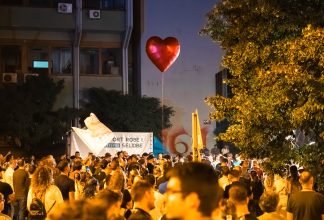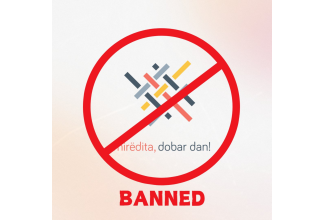Human Rights Defenders School
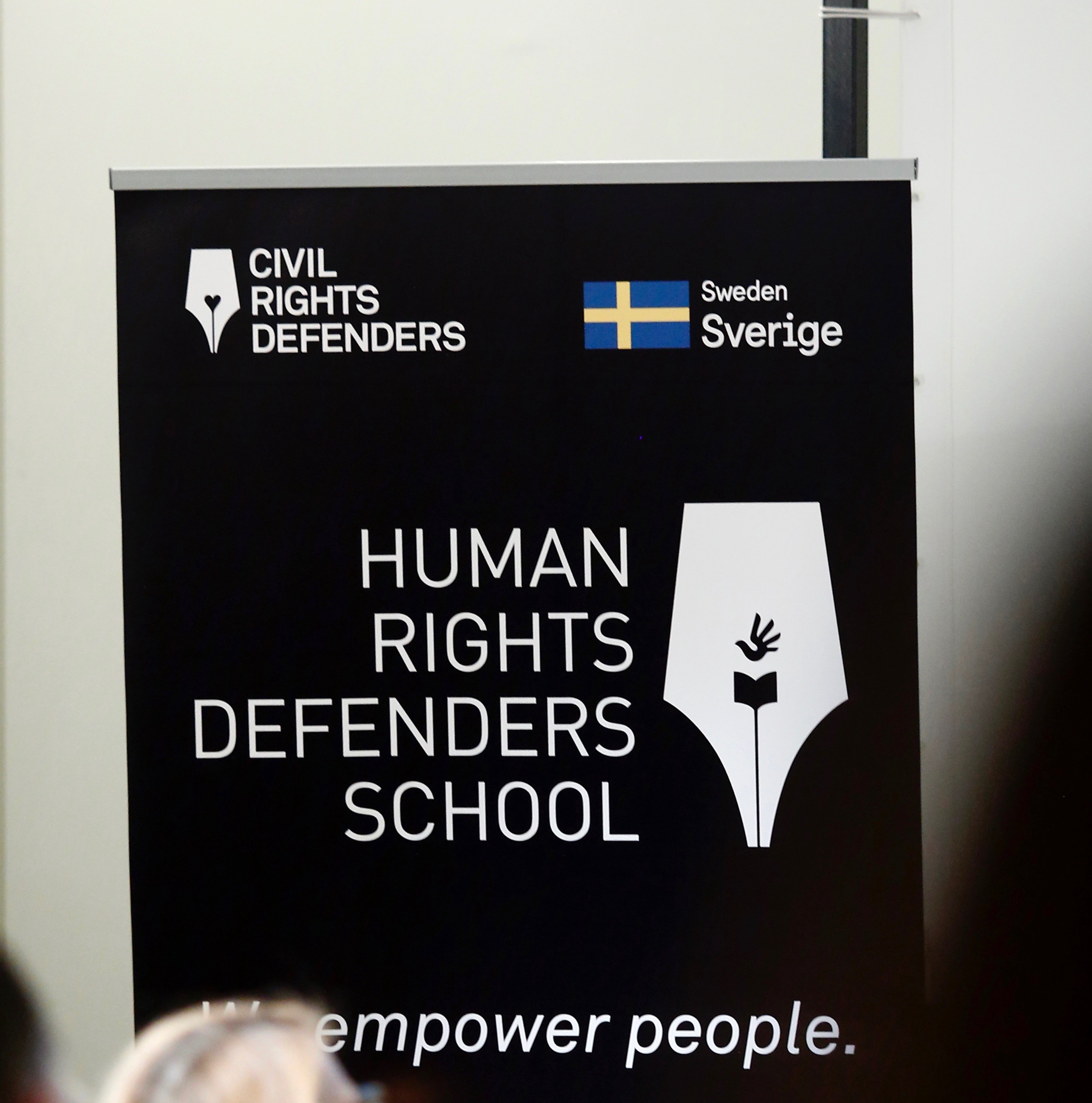
For the fourth consecutive year, the Human Rights Defenders School in Belgrade, Serbia, opened its doors to a new class of anticipating students. During two semesters, they will take part in Civil Rights Defenders curriculum on human rights, including transparency, rule of law, minority rights, and more.
Each year, around 50 students between the ages of 18 and 35 are selected to participate in the program. After being divided into groups, they sit in on 30 lectures and workshops, divided between the cities of Belgrade and Nis. The topics range from freedom of media to the positions of the regions minority groups, and are being taught by experts, researches and operatives already active in the field. The human rights themes are put in context through educational study visits to Sarajevo and Pristina. The year is concluded with two assignments, either events or written papers, or a mix between the two.
When asked how the Human Rights Defenders School has developed over the years, Goran Miletic, director for Europe and working in Belgrade, mentioned content and lectures:
We evaluate all lectures and exclude the ones that don’t score well, instead replacing them with new ones. All lectures has a practical focus, since younger generations are tired of theory and want to know what they can do to change things now. They appreciate real life examples and success stories and we encourage lecturers to provide them with that.
Civil Rights Defenders have been stationed in the Western Balkans since the inauguration of the Belgrade office in 1996. Since then, the operation has expanded to include several field offices in the Balkans, and have cooperated with more than 150 human rights organisations and media outlets in the region. As a result, Civil Rights Defenders work is based on extensive experience and understanding of the local context. Sadly, human rights as a topic is not widely spread among people in the region, since no educational curriculums have mandatory inclusion of human rights, and are mostly touched upon in electable university courses. For this reason, the Human Rights Defenders School in Serbia plays a vital part in educating, preparing, and advocating for human rights in the country.
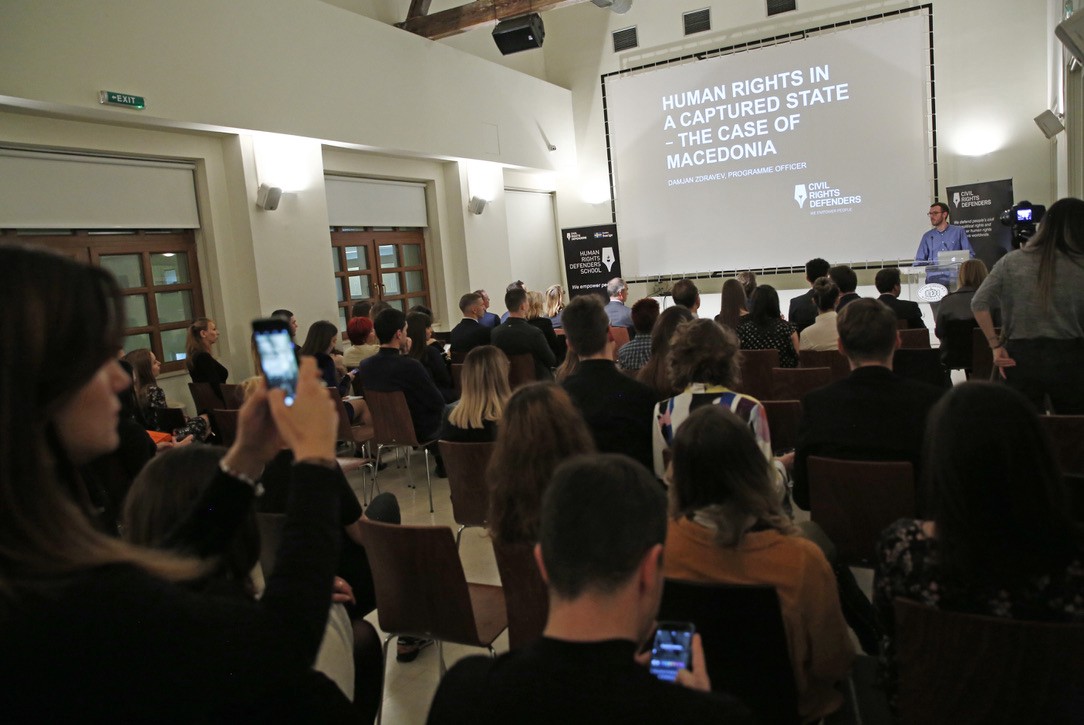
The Human Rights Defenders School in Serbia focuses on equipping young defenders with knowledge, skills and perspectives to build capacity to work within the region of the Western Balkans. The underlying values can be seen in the effort to have equal representation of women and men in the classes, even though a female bias has been noted in the field of human rights. Both gender equality, gender as a basis for discrimination and gender mainstreaming are covered by the curriculum. A second aspect worth highlighting is the aim of the program to bring youths together, and build lasting relations. Besides creating and strengthening a young network of human rights defenders, organisations experienced in these topics will gain insight into youths attitudes and knowledge of the relations between ethnic minorities, discrimination, and dealing with the past, the media, Roma and LGBT, rule of law and overarching human rights systems.
The study visits to Pristina and Sarajevo in particular connects the issues and themes discussed in the classroom with the situation today. The focus of these visits are to deal with the difficult history and share stories from the past, displaying different perspectives and to encourage a respectful debate on some of the events that has led to the current state in Serbia. Goran Miletic explains:
Serbia was involved in wars in Croatia, Bosnia and Herzegovina and Kosovo during the 90s. However, it is an extremely big taboo to talk about war crimes and serious human rights violations committed by Serbian forces. The key narrative in society is that Serbs are victims. We are working with young activists to explain facts and figures,as well as share concrete examples of incidents from these wars, aiming to put victims at the centre, and not the ethnicity of the victim.
Each study visit will last for three days, during which students will attend some ten lectures taught by experts from neighbouring countries, hoping to contribute to preventing future conflict and promote reconciliation.
Most human rights violations in the Western Balkans concern gender and ethnicity. Domestic violence and abuse are a big problem. Moreover, the minority groups of Albanians, Roma and LGBT+ are being structurally discriminated against, as well as being victims of hate speech and direct violence.
The key element in any networking between activists from the Balkan region is reconciliation, since nationalism still is a very strong force in this region and the level of prejudice and ethnic distance is extremely high. For example, a vast majority of Serbs don’t want an Albanian or Roma as their boss, neighbour, member of family etc. — Goran Miletic, director for Europe.
The general lack of understanding and respect for human rights among young people (one of the reasons being no mandatory education on the topic), makes the above incidents and attitudes a regular occurrence. That is why our Human Rights Defenders School is such an important part of making the region safer, improving the region’s outlook by engaging future experts and leaders.
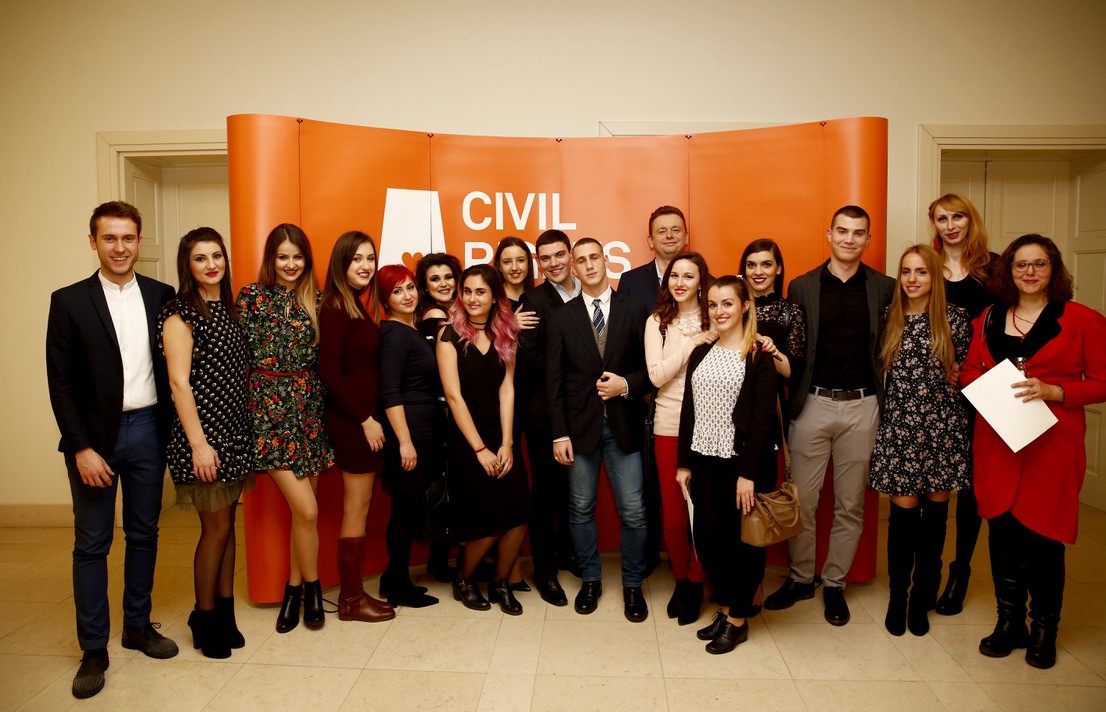
At the end of the school year, the students will receive a certificate, showcasing their acquired knowledge and skills in the field of human rights. Many will also leave with recommendations for positions and internships among Civil Rights Defenders partners, facilitating their continued learning and growth. In 2015, 40 percent of the students went on to internships in human rights organisations, and five more students went on to internships in governmental institutions. In addition, eleven went on to further education of human rights. Civil Rights Defenders wish the class of 2018 good luck, and look forward to seeing you in the field working for human rights.
